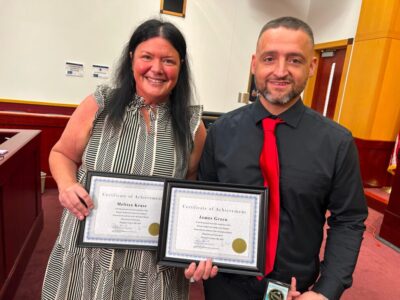The Supreme Court can undo past confusion with its ruling on this WWI memorial
For decades the Supreme Court has entangled itself in Establishment Clause decisions that have been, in the words of Alice in Wonderland, curiouser and curiouser. On Wednesday, it can leaven with clarity the confusion it has sown.
The First Amendment’s first words say, “Congress shall make no law respecting an establishment of religion.” The court conducts its business after a chant that includes “God save the United States and this honorable court” and both houses of Congress have taxpayer-paid chaplains who pray for divine guidance. The court has, however, held that any policy or practice by a public entity that touches religion, however marginally, violates the Establishment Clause unless (a) it has a secular purpose and (b) its primary effect neither advances nor inhibits religion and (c) it does not foster excessive government entanglement with religion. In 1983, the court held, rudely but prudently, that Nebraska’s Legislature could continue being prayed over by its paid chaplain, thereby implying that the chaplain negligibly advanced religion. (The First Congress hired a chaplain, but James Madison, principle progenitor of the First Amendment, later said tersely that this “was not with my approbation.”)
The court has refereed controversies involving, among many other things, the permissible quantity of religious symbols in Christmas displays on public property, where and what kind of displays of the Ten Commandments are constitutional, and what cannot be said to “solemnize” a high school football game in Texas, where football hardly needs solemnity infusions. The court has held that books but not maps can be provided by public funds to parochial schools, causing the late Sen. Daniel Patrick Moynihan to wonder: What about atlases, which are books of maps?
Come Wednesday, the court will worry about a war memorial 4.8 miles away in Bladensburg, Maryland. In 1925, the Peace Cross, privately built on land given by the town to an American Legion post, was dedicated to 49 local men killed in World War I, when crosses marked most overseas graves of U.S. dead, regardless of their religious affiliations. Time passed, the population grew, a local government commission acquired the land, which is now in a traffic roundabout. A commemoration event occurs there each Veterans Day. There is no record that a religious event has ever been held at the cross in 94 years.
But a few cranky, persnickety, hairsplitting secularists say, with religious zeal, that the cross is now on public land so the Establishment Clause is violated. A district court affirmed the obvious: Honoring the war dead is a secular purpose. But a divided three-judge circuit court panel reversed. Engaging in something akin to Jesuitical casuistry, two judges said a cross must everywhere and always be a primarily symbol of Jesus’ death, and because government provides maintenance for the plot in the roundabout, this cross excessively entangles government with religion.




